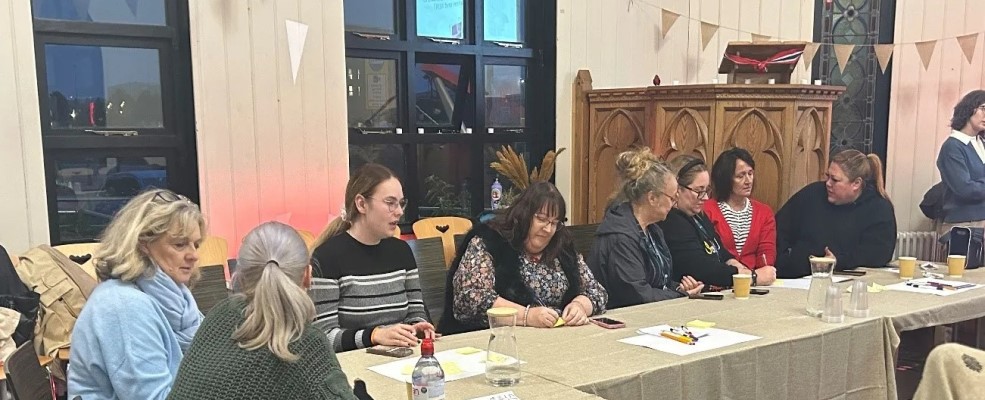Jen Keating is a Research Associate from the ADR Wales Education theme and the WISERD Education Data Lab. In a new blog post, she describes two workshops she led in November for parents, carers, and educators on how they can best use national data to support children with additional learning needs (ALN) in Wales. These workshops took place at the Norwegian Church in Cardiff Bay as part of the ESRC Festival of Social Sciences.
My primary research aim is to understand and improve education outcomes for children with ALN. I work on the projects “Participation in and Progression Through Education in Wales” and “Right Place, Right Time, Right Support: exploring additional learning needs provision and educational outcomes in Wales”.
In my research, I use administrative and population level datasets. This includes administrative data from the Welsh Government on pupil’s education outcomes, such as attendance and attainment, in addition to children’s health data and household information from the Census.
As a researcher, I am really passionate about conducting research on topics that are important to individuals with lived experience of the ALN system. As a result, the aim of these workshops was to understand the research priorities of parents, carers, and educators of children with ALN.
We ran two workshops: one for parents and carers, and one for teachers and educators. Each workshop began with a short introduction from myself, introducing ADR Wales and the WISERD Education Data Lab, and the work we do. We discussed what administrative data is, how we anonymise all our data to protect everyone’s privacy, and some examples of previous projects we have worked on.
Attendees were then asked to identify topics that they felt would be important to research using the administrative data we have access to at WISERD and ADR Wales. It was great to hear about all the ideas discussed by the attendees and to see common themes emerge throughout the room. These themes included early years intervention, such as how early years health visits feed into ALN support and delays in assessment and access to support.
Attendees also discussed attainment and long-term outcomes of children with ALN, including employment and mental health outcomes for children beyond school. Both caregivers and educators highlighted the importance of considering the wider environment of the child, including developmental history and family support. Each group was then asked to refine their ideas into research questions. Again, it was fascinating to hear what mattered most to this community.
Running these workshops has been an invaluable opportunity to engage with parents, carers, and educators with lived experience of supporting children with ALN. We are incredibly grateful to all of the attendees for giving up their time and expertise in taking part. The ideas shared at these workshops will feed into future research at the WISERD Education Lab.
This blog post was originally published on the ADR website.

